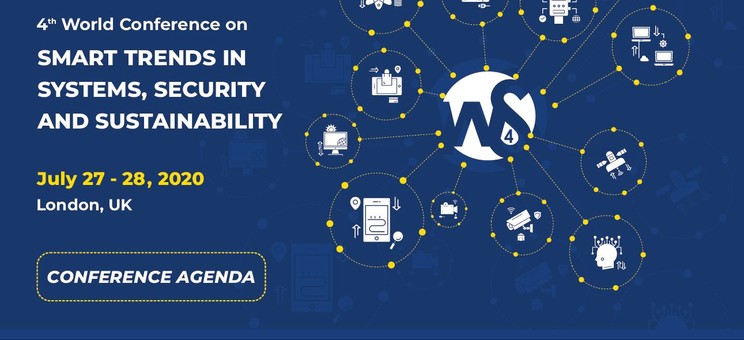Konferencja World S4 jest poświęcona roli nowych technologii, ewolucji inżynierii w rozwijaniu technologii przyjaznej człowiekowi. Konferencja dzięki platformie zdalnej tworzy możliwość do zaprezentowania ważnych badań i literatury z zakresu bezpieczeństwa, systemów i zrównoważonego rozwoju, a także zapewnia przegląd nowych technologii.
We wtorek 28.07.2020 r. mgr inż. Bartosz Kowal wygłosił referat podczas 4-tej Międzynarodowej Konferencji - WorldS, World Conference on Smart Trends in Systems, Security and Sustainability, https://worlds4.co.uk
Tematem referatu był artykuł autorstwa: dr inż. Dominika Strzałki prof. PRz, dr inż. Pawła Dymory, dr inż. Mirosława Mazurka, mgr inż. Bartosza Kowala, Prof. Waldemara W. Koczkodaja oraz dr Granta Duncana zatytułowany: Government issues and opportunity: a case study based on a medium sized city in Poland.
Artykuł pokonferencyjny "WorldS, World Conference on Smart Trends in Systems, Security and Sustainability" został opublikowany w bibliotece IEEE Xplore.
G. Duncan, P. Dymora, W. W. Koczkodaj, B. Kowal, M. Mazurek and D. Strzałka, "Open Government issues and opportunity: a case study based on a medium-sized city in Poland," 2020 Fourth World Conference on Smart Trends in Systems, Security and Sustainability (WorldS4), London, United Kingdom, 2020, pp. 563-568, doi: 10.1109/WorldS450073.2020.9210264
https://ieeexplore.ieee.org/abstract/document/9210264/
Abstrakt:
Miasta inteligentne zyskują coraz większą popularność w kontekście łączenia mieszkańców z usługami (np. głosowanie elektroniczne, placówki opieki zdrowotnej, placówki edukacyjne, dystrybucja żywności, budżet społeczności itp.) dzięki rozwojowi i wdrażaniu inteligentnej infrastruktury miejskiej. Takie usługi są również częścią koncepcji otwartych danych, które mogą znacznie poprawić jakość i skuteczność usług oferowanych w systemach wsparcia inteligentnego miasta, a tym samym przyczynić się do wzrostu gospodarczego. Proponujemy model koncepcyjny związany z projektem Europejskiego Modelu Miasta Inteligentnego, który opiera się na połączeniu siedmiu kategorii „inteligentnych”: biznesu, mobilności, środowiska, zarządzania, życia, ludzi i świadomości, poczucia własnej wartości i niezależnej aktywności obywatelskiej w Systemie Otwartych Danych przepływu danych rzeczywistych systemów usług elektronicznych jako studium przypadku średniej wielkości miasta w Polsce. Przedstawiamy miasto Rzeszów jako przykład takiego Miasta Inteligentnego jako centralne miasto Doliny Lotniczej. Poprzez inicjatywę Otwartych Danych Rządowych miasto Rzeszów poświęciło się zwiększonej przejrzystości, zaangażowaniu i partnerstwu ze społecznością, przedsiębiorstwami i społecznościami badawczymi.







